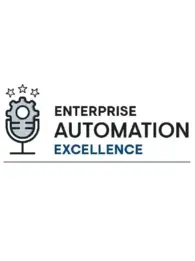
Payroll, purchasing, and accounts payable are just some finance processes being managed in shared service centres for many of the UK’s large enterprises. These centres of excellence are set up to optimise back office support functions, help organisations improve business-wide service levels, effectively manage high volumes of financial transactions, and operate more cost-effectively. With increasing amounts of financial data to manage, it may come as a surprise to learn that many shared services centres are still processing large numbers of financial transactions manually. It’s a slow, laborious, and error-prone task. For example, in a shared service centre, it’s likely that the accounts payable team will manage thousands, maybe even tens of thousands, of invoices each month. The act of managing the invoice life cycle manually from receipt through to payment has a huge impact on the AP team’s time and stifles their ability to be productive and get on with other tasks. The act of performing these repetitive, monotonous manual tasks can easily lead to user errors. As invoices are sent around the business for approval, they can easily be misplaced; inputting errors such as incorrect payment values or payment details are frequent occurrences, and line items not matching up on purchase orders (PO) or missing PO numbers are also common mistakes. Finance professionals aren’t robots, but these inaccuracies can cause accounts teams unnecessary headaches, including payment delays or supplier complaints. It’s not just the late payment of invoices that finance teams need to worry about. A recent survey we conducted with over 100 large enterprises with shared services centres in the UK & Ireland showed that their finance teams are also concerned about the quality of the data in their ERP systems. Duplicated data, lack of data validation, and corrupt data are all concerns shared by almost half of the shared services centre managers we surveyed. However, it doesn’t have to be that way; late payments, concerns over data quality, and frustrated, unproductive staff could soon be a thing of the past as many financial processes are ripe for automation. Enabling greater efficiencies in the shared services centre, automation technologies such as robotic process automation (RPA) can transform how many financial processing tasks are typically managed. By automating many of these time-consuming, manual processes, finance teams can be freed up to concentrate other tasks delivering greater value to the business. Although this technology is readily available, according to our survey, 75% of respondents are yet to fully realise the benefits of automating financial processes such as accounts payable and purchase to pay, general ledger, or journal entries. Enterprises with shared services centres are primed to make significant gains with the adoption of flexible, agile automation solutions, particularly when it comes to consolidating and standardising high volume activities. The use of RPA tools designed specifically for the movement of data into and out of ERP systems, such as SAP’s accounting function, significantly speeds up many finance-related tasks, minimising invoicing traffic jams, and improving master data accuracy and compliance. With only a quarter of respondents claiming to be already benefiting from automation, our survey results indicated that the reasons some organisations are yet to fully embrace automation are lack of budget, identifying processes suitable for automation, and then readying those processes to be automated. Clearly, there’s work to be done if more shared service centres are to benefit from automation. However, for those that have already eliminated manual processes from their finance teams, they’re seeing productivity levels soar and happier, more fulfilled staff no longer having to spend hours inputting data manually. What’s more, they are confident in the quality of their data, which has a positive impact on the whole business, not just the finance team.
Enjoy this piece? Why not check out the Top 10 Data Breaches of 2019 (and the lessons learnt)?













Comments ( 0 )